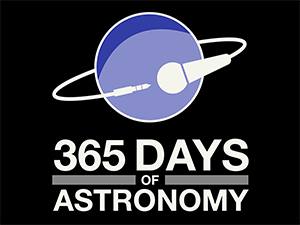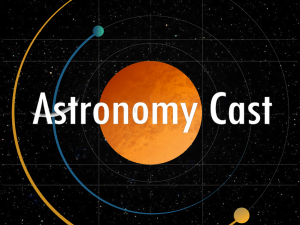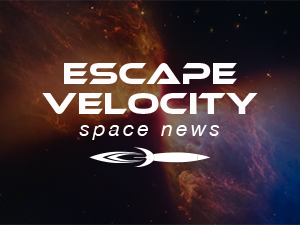Greetings, all. We’re re-starting our weekly email newsletter (and blog post) to keep you updated on all things CosmoQuest. We’ve had a LOT happen in the last few months, so here is one place where you can catch up on upcoming community events, the state of our citizen science projects, and educational opportunities.
Where We Are; Where We’ve Been
 CosmoQuest launched almost a year and a half ago with Moon Mappers. You have since helped us mark over a million craters on the surface of the Moon! Our project scientists are currently working on the results to submit a paper to a scientific journal. But the mapping continues for new science down the road! In the first year, we also launched Ice Investigators, and you simply devoured all the data we had in looking for a Kuiper Belt object to be visited by New Horizons. The project still exists in archived form until such time as more data can be made available.
CosmoQuest launched almost a year and a half ago with Moon Mappers. You have since helped us mark over a million craters on the surface of the Moon! Our project scientists are currently working on the results to submit a paper to a scientific journal. But the mapping continues for new science down the road! In the first year, we also launched Ice Investigators, and you simply devoured all the data we had in looking for a Kuiper Belt object to be visited by New Horizons. The project still exists in archived form until such time as more data can be made available.
If you are looking for something really weird to explore, Asteroid Mappers features images from the Dawn Mission to asteroid Vesta. Today, we talked to some of the science team on a Google Hangout about their current work. Don’t worry, if you missed the live broadcast, we’ll be posting the archived version, as always on our YouTube channel. You’ve marked over 360,000 craters on Vesta so far, and we’re delighted. We currently have Planet Mappers: Mercury Edition in beta, so you can explore and map images of Mercury from the MESSENGER spacecraft, as well. We are looking forward to launching Planet Investigators soon, and this project will allow you to identify Jupiter, Saturn, and their moons in Hubble Telescope archive photos so that planetary scientists can better use this treasure trove of data.
Our education team has been working hard to make sure that you can use citizen science in the classroom, as well. TerraLuna is a three-week unit geared towards middle school teachers and is a comparative unit on lunar and terrestrial geology. The lessons can be used individually or as a whole and is aligned to the Next Generation Science Standards, the National Science Education Standards, and the Project 2061 standards. Engaging activities can be used in informal education settings, as well. While we provide teacher professional development opportunities with the TerraLuna curriculum, we will also begin working on a new unit that will explore asteroids and other small, rocky worlds in our solar system. The project’s working title? In-VESTA-gate!
The team is particularly focused on “guerrilla science outreach” where we take science to the people where they are! We’ve met hundreds of CosmoQuesters at events such as South by Southwest, Dragon*Con, MeetUps in various cities where we attend science conferences, and even at our hometown custard stand for Yuri’s Night. We’re happy to continue the conversation online as well, through the Forums, Google+, Twitter, and Facebook. We’re particularly happy to have you all on board as part of our community where we can learn and do science together.
In recent weeks, our funding status has become uncertain due to the turmoil happening at the federal level. However, we plan to keep CosmoQuest going with a combination of finding new grants, generous donations by our users, and upcoming crowdfunding and other fundraising events. Please stay tuned to our blog feed for more information, and thank you for all the support you’ve given us to this point.
24 Hour Hangout-a-thon
Ever want to see what happens when you give two astrophysicists lots of coffee and see what they’ll do over a 24 hour period? Pamela Gay and Nicole Gugliucci are doing a 24-hour LIVE broadcast using Google Hangouts on June 15-16. We’re currently booking a bunch of exciting and fun guests to keep you entertained, and us awake, as well as dishing on astronomy, science, education, and whatever else happens to catch our fancy. This event will be a fundraiser for CosmoQuest to keep our project going (and our programmers fed) so get ready to do some PayPal clicking to show your support. Who knows, if we keep getting donations, we’ll stay on air for 28, 30, maybe even 36 hours? It all depends on you. More information to come, so RSVP to the Google Event for updates.
Online Course: CQX002 – The Sun and Stellar Evolution
We’re happy to offer an online class, taught by Ray Sanders, on the sun as a star and the life cycles of stars. During this 4-week / 8-session course, you’ll explore the Sun, and Solar Evolution from an astronomer’s point of view. The course will begin with an overview of the Sun, and solar phenomenon. You’ll also explore how stars are formed, their life cycles, and the incredible events that occur when stars reach the end of their lives. The course will culminate with students doing a short presentation on a topic related to the Sun or Stellar Evolution. Enrollment is open now for the class starting May 13th!
Help Us Learn How You Learn
The scope of CosmoQuest is not just astronomical research. We love to learn how you learn and interact with the science as well. In the coming weeks, you may be prompted to take a brief survey about your attitudes towards citizen science, CosmoQuest, and astronomy. This survey is absolutely optional, but the results will help us to understand what makes citizen science projects tick and how we can improve them in the future. As a thank you for participating, users who have completed the survey will receive a link to special CosmoQuest video content not available to the public. We thank you in advance for your feedback and for helping us to further citizen science research!
Upcoming Events (in the REAL World)
Where will we be next? Our calendar is a good place to find such information. In the coming few weeks, here is where you can find us out and about in the real world:
- May 15-17 – St Louis, MO – NSTA STEM Forum and Expo – Are you a science educator planning on attending the STEM Expo in St. Louis? CosmoQuest will be there along with our collaborators from the SIUE STEM Center. We have side-by-side booths at the Expo on Wednesday night’s preview and all day Thursday and Friday. More information about the conference can be found on NSTA’s website, and let us know you’ll be there on our MeetUp page.
- May 24-27 – Baltimore, MD – Balticon – This sci-fi/fantasy convention is chock full of writers and podcasters, plus our own Pamela Gay will be presenting and debuting our comic/activity book, Free Wifi on Mars. Find out more at Balticon.org.
- June 2-6 – Indianapolis, IN – AAS Summer Meeting – Nicole Gugliucci will be presenting results of our CosmoQuest citizen science motivations survey at the American Astronomical Society meeting in Indianapolis in June. Social MeetUp details coming soon!
Upcoming Hangouts
 We strive to bring you entertaining and educational programming several days a week using Google Hangouts and YouTube. You can watch live and join in the comments or view the archived versions on YouTube. This week’s programming includes:
We strive to bring you entertaining and educational programming several days a week using Google Hangouts and YouTube. You can watch live and join in the comments or view the archived versions on YouTube. This week’s programming includes:
- Thursday, May 9 @ 12pm PDT – Planetary Society Hangout – Casey Dreier will be joined by Emily Dean, Pancam Payload Uplink Lead (Martian landscape photographer) on the Opportunity rover mission, which just celebrated its 9th year on the red planet.
- Friday, May 10 @ 12pm PDT – Weekly Space Hangout – Fraser Cain, Nicole Gugliucci, and a team of astronomers, space journalists, and science aficionados bring you this week’s top stories in space and astronomy. We’ll be updating you on this week’s rocket launches, hungry black holes, and more.
- Sunday, May 12 @ 8:30pm PDT – Virtual Star Party – In partnership with Universe Today, we bring you a weekly tour of the wonders of the night sky thanks to a team of astronomers willing to share their telescope views with you. As always, this event is weather dependent and subject to a time change depending on conditions.
- Monday, May 13 @ 12pm PDT – Astronomy Cast – Fraser Cain and Pamela Gay record episode 301 of Astronomy Cast live on Google Hangouts and, afterwards, take your questions about space and astronomy.
- Wednesday, May 15 @ 4pm PDT – Learning Space – Next week, we’re talking about astronomy outreach with Jake Noel-Storr, Director of the RIT Insight Lab.
365 Days of Astronomy Rolls on at a New Site
CosmoQuest is now hosting the 365 Days of Astronomy, a legacy project of the International Year of Astronomy. Listen to submitted content, submit your own podcast, or catch up on the audio-only version of our weekly Hangouts. This past weeks shows include:
- Thursday, May 2 – Planetary Society on NASA’s 2014 Budget and Planetary Defense Conference
- Friday, May 3 – The Weekly Space Hangout from April 26th
- Saturday, May 4 – Cheap Astronomy – Live at Mr. Stromolo
- Sunday, May 5 – Introducing Astrophotography and the Advanced Observer Program at Kitt Peak
- Monday, May 6 – Astronomy Cast Episode 296 – Space Stations, Part I
- Tuesday, May 7 – Observing with Webb in May
- Wednesday, May 8 – Learning Space on Space Apps and Hackathons
What’s Next?
The programming team is working to release version 3 of the site with an improved homepage layout and some minor adjustments to make your citizen science experience a little easier. There will be a few new features as well, so stay tuned to future newsletters for those announcements and to the YouTube channel for new video tutorials. We’re also gearing up to start a crowd-funding campaign to launch a whole new citizen science project within CosmoQuest. This project will be unlike anything we currently offer, so we’re super excited to get it off the ground, with your help! This and more coming in future editions of the CosmoQuest Newsletter. Thanks!






